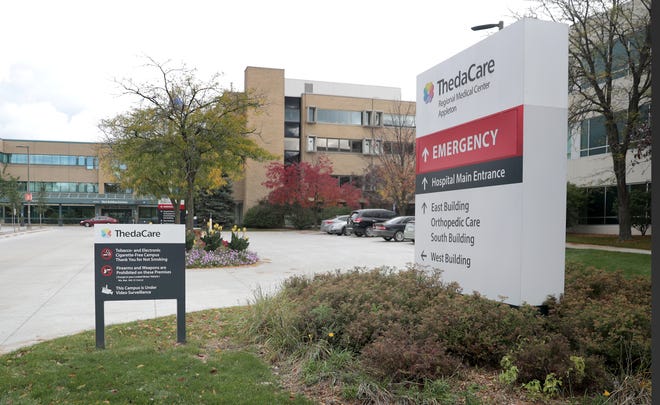

ThedaCare and Froedtert Health are expected to merge by the end of the year.
With any merger, some common concerns typically arise surrounding how the move will affect patients and employees.
Froedtert CEO Cathy Jacobson and ThedaCare CEO Imran Andrabi spoke to the USA TODAY NETWORK-Wisconsin to address some possible questions about how the merger will affect patients and employees in the region.
Here are those answers to how it will impact your care.
More:Wisconsin-based Froedtert Health and ThedaCare to combine in latest hospital consolidation

Will there be a new name?
ThedaCare’s name will remain. While the health systems have not decided what the new name will be, both Froedtert and ThedaCare’s names will go forward.
“These are two very strong legacy community organizations and both names will go forward,” Jacobson said.
The name “Theda” extends all the way back to 1903, when Theda Clark Peters, daughter of Kimberly-Clark co-founder Charles B. Clark, died from complications after childbirth in part because there was no hospital nearby. She left $96,000 in her will for a community project and her family used the money to build Theda Clark Memorial Hospital, which opened six years later in Neenah.
Jacobson will lead the merger as the CEO and Andrabi will become the president of the organization. After six months, Jacobson announced Tuesday, she will retire and Andrabi will take her position as the new leader.

Will I be able to see my doctor at my nearby clinic?
Yes.
ThedaCare patients will still be able to receive local care and visit their primary care physician.
The merger will bring advanced care to the region, providing more access to services and resources from Milwaukee to the Fox Valley, Andrabi said.
“Same physicians, same care closer to home, more resources available to be able to provide not only your primary care, but your complex care, and then doing it in a seamless way as best as we possibly can,” Andrabi said.
Will there be layoffs?
That’s unclear.
Jacobson said those decisions have not been made yet. The goal of the merger is not to “cut and consolidate” but to find opportunities for improved care, Andrabi said.
Will costs go up?
When asked whether prices would go up as a result of the merger, Jacobson said the focus would be on patient care.
“What we’re here to do really is to bring value, and that is a combination of better access, better quality and reduced cost,” Jacobson said.
So what will change?
The merger will make more treatments and resources available closer to home.
Because many patients travel to Froedtert for advanced care, such as organ transplants or complex surgeries, ThedaCare and Froedtert already had many mutual patients.
The two health systems had previously begun partnering together to build micro-hospitals in Oshkosh and Fond du Lac and offering heart and lung transplant recovery in the Fox Valley.
ThedaCare wanted to build on the opportunity to add more resources by merging with Froedtert, Andrabi said.
“It’s time for us to take it to the next level and really create an organization that seamlessly can take care of a patient all the way from a patient coming into a primary care physician’s office to somebody who needed to have super complex or like a heart transplant done in one system,” he said.
Sarah Volpenhein contributed to this report.
Benita Mathew is a health and science reporter for the USA TODAY NETWORK-Wisconsin. Contact her at [email protected]. Follow her on Twitter @benita_mathew.






